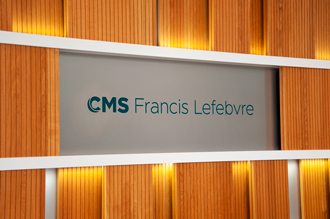The Covid-19 crisis, which has currently plunged the planet into lockdown, has brought large swathes of the economy to an abrupt halt. This unprecedented situation has thrown M&A transactions into severe disruption. This sudden change to the market firstly impacts negotiations in progress.
Those negotiations may be suspended, particularly at the request of the purchasers. Some negotiations are certainly still continuing. But they are taking place in a very unusual framework, due to specific requests from the parties and their partners (e.g. lending banks), which want to take into account the impacts of the health crisis on potential completion of the transaction.
1) The impact of the health crisis on operations whose negotiations are in progress (presigning)
More advanced due diligence?
The Covid-19 crisis will impact, and is already impacting, the way in which due diligence is conducted.
First of all, setting up new data rooms may prove more complicated during the lockdown (since collecting and uploading documents is more difficult) and certain due diligence stages will be more difficult to carry out (discussions with management), while others simply cannot be completed (e.g. site visits).
Secondly, purchasers will no doubt be likely to analyse the information provided in data rooms from a new perspective, for example by trying to assess or identify:
- the consequences of Covid-19 on the operational and financial situation of the target and more specifically its cash flow and its level of WCR;
- the effects of Covid-19 on the target’s partners: suppliers, customers, etc. and the conditions under which the contracting parties could suspend performance of their obligations or even request their renegotiation or termination;
- the target’s short- and medium-term ability to meet the commitments and financial ratios stipulated in the financing documents; and
- the crisis management policy implemented and the measures adopted for employees.
Furthermore, purchasers may wish to ask sellers to update business plans already communicated, in order to include the impacts of the current situation. This exercise could prove tricky, however, since no-one can currently predict when or how the economy might return to “normal”, much less assess the medium- or even short-term impacts.
These factors are likely to create uncertainty and slow down the timetable for transactions in progress in order to “bide time” until a clearer outlook emerges.
Transactions subject to greater constraints: MAC clauses, financing conditions, etc.
In order to alleviate the uncertainties and move forward with transactions, while providing reasonable means of exit in the event the situation deteriorates significantly between signing and closing, purchasers are likely to ask for the inclusion of conditions precedent. Their aim will be to guard against a significantly unfavourable change affecting the target or the acquisition conditions.
Purchasers will therefore seek to obtain "material adverse change” (MAC) clauses releasing them from their obligations in respect of the sale agreement if an adverse event occurs between the signing and the closing.
For sellers, these clauses must be drafted as precisely as possible in order to provide for sufficiently objective implementation criteria and specify events whose impact on the target is sufficiently long-lasting to avoid providing the purchaser with an unjustified exit route.
In order to cover the consequences of the Covid-19 crisis, the MAC clause must be specifically mentioned and the circumstances in which it can be implemented must be defined as precisely as possible (fall in turnover, prolonged closure of plants, etc.).
Other types of conditions precedent could be requested by purchasers in the future, particularly in relation to financing. In a particularly uncertain and volatile banking environment, purchasers will want to protect themselves against the risk of failure to obtain financing agreements and/or failure to release funds.
The deadlines to be stipulated in contracts for the fulfilment of these conditions precedent must also be sufficiently far off to take account of the slowdown resulting from the health crisis, i.e. longer deadlines for obtain financing or merger control authorisations, for example.
Return of price adjustment clauses likely...
For several years, transactions have been dominated by “locked box” mechanisms favourable to sellers, giving them certainty as to the amount of the sale price. A locked box involves determining the price based on the target company's last available accounts and thereby transferring economic ownership from the date of those accounts. For transactions in progress, this fixed price – determined on the basis of reference accounts pre-dating the outbreak of the health crisis – may no longer correspond to the actual economic situation of the target, which may have been impacted by Covid-19.
The current crisis could well mark the return of price adjustment clauses. Unlike locked box clauses, a price adjustment mechanism works on the basis of accounts ruled off on the closing date, thereby making it possible, in some respects, to take account of the target company's actual situation, particularly in terms of net debt and its level of WCR, which may have deteriorated since the end of the last financial year.
Furthermore, given the uncertainty of the current economic situation, purchasers will tend to ask that only part of the estimated price is paid upfront on the closing date, in order to minimise the risk of being forced to recover a (potentially high) overpayment from the seller once the final price has been calculated, based on the accounts ruled off on the closing date.
... and earn-out clauses
Whereas the price adjustment mechanism with payment of only part of the provisional price makes it possible to determine a price as close as possible to the financial situation of the target company on the closing date, in a context as uncertain as the current one, the parties may also wish to take the target's outlook into account and its ability to rapidly resume profitable operations. To do this, the parties may provide for payment of an earn-out, calculated using a formula indexed according to certain future financial aggregates of the target.
Although such earn-out clauses may seem attractive in the current context, they nevertheless raise certain difficulties and their implementation may prove tricky in practice. These clauses tend to be perceived simply as a deferred payment in the minds of sellers, while purchasers will be inclined to view their payment as fairly hypothetical. This creates tensions during negotiation of these clauses, which may make it more difficult to reach agreement on the transaction.
These clauses are also likely to create tensions when they come to be implemented. Since the seller no longer controls the target following the sale and so no longer has any control over the performance criterion used to determine payment of the earn-out, it will want to protect itself by inserting restrictive clauses in the SPA concerning future management of the target. Conversely, the purchaser will want to “integrate” its acquisition as freely (quickly?) as possible and have the freedom to take decisions designed to ensure value-creation over the long term and not necessarily over the horizon provided for the earn-out. The wording of these clauses must therefore be particularly precise, in order to reduce the risks of disputes regarding their application.
Less onerous warranties
In an uncertain market in which power relationships are shifting, purchasers will be inclined to ask for – and may be more likely to obtain – more extensive representations and warranties from the target.
The scope of representations and warranties could be extended so that the seller bears a greater portion of the risk linked to the Covid-19 crisis. Similarly, the level of thresholds and allowances could be lowered and ceilings increased.
Specific compensation (exact compensation, without application of thresholds, allowances or ceilings) could possibly be discussed if the current situation posed specific and identified risks to the target (e.g. loss of one or more specific contracts).
In addition to these major difficulties encountered during the negotiation stage, Covid-19 is also likely to impact signed M&A transactions (between signing and closing). We will deal with this in a future article.
2) Covid-19 and signed M&A operations (between signing and closing)
Transactions for which a put option letter or a contract of sale has been signed should, in principle, follow their normal course to reach closing under the terms provided for in the contractual documentation.
However, given the current context, some buyers may try to avoid their obligations or renegotiate the terms of the transaction.
Operations for which a put option letter was signed
When the parties agree on the terms and conditions of an operation, but the seller cannot commit to the sale before obtaining the approval of its Social and Economic Committee (CSE), a put option letter is usually signed by the buyer. This put option letter allows the seller to decide to exercise the option, once the opinion of the CSE has been obtained, and proceed with the sale under the conditions of a contract of sale, of which the final version is attached to the put option letter.
Once the CSE has issued its opinion, which remains possible during the social distancing period thanks to video conference platforms, and if the seller exercises the option, the buyer, in principle, has no other choice than to sign the contract of sale.
Should a buyer refuse to perform its obligations, the seller may request forced execution, which is generally expressly provided for in put option letters. The seller may also obtain compensation for any damage sustained. However, the fact that the courts are currently closed will make the process longer than usual.
Put option letters often provide that, if after a certain period of time, the buyer refuses to sign the contract of sale despite the exercise of the put option, the contract of sale will be deemed to be signed, constituting effective protection against a non-complying buyer.
The buyer could also be tempted to avoid its obligations by invoking force majeure or unforeseen circumstances. However, as we will see, this should not allow it to evade its commitments.
The possibilities of withdrawing from a transaction for which the contract of sale was signed.
When the contract of sale has been signed, the buyer cannot, in principle, withdraw from the transaction and must carry out in good faith the procedures required for the lifting of the conditions precedent for closing. In the current context, several avenues could be explored by a buyer wishing to withdraw from a signed transaction.
Force majeure
Article 1218 of the Civil Code establishes the three criteria for determining the occurrence of a force majeure event: inability to prevent the occurrence, unpredictability and exteriority. If a force majeure event prevents a debtor from complying, the contract may be subject to suspension or even termination.
While the Covid-19 crisis meets certain force majeure criteria, it is very unlikely to prevent the parties from fulfilling their obligations.
In particular, case law prevents buyers under an obligation to pay a sum of money to invoke force majeure in order not to comply.
Unpredictability
Article 1195 of the Civil Code essentially provides that a party may request the renegotiation of the contract from the co-contracting party in the event of a change in circumstances that was not foreseeable at the time at which the contract was executed, making the performance of the contract excessively onerous for the former, insofar as he did not accept to take the risk. This provision of ordinary contract law cannot, however, be validly invoked for financial securities transactions. Article L. 211-40-1 of the French Monetary and Financial Code expressly excludes the provisions of Article 1195 of the Civil Code for such transactions.
Thus, not only do most contracts of sale establish in practice a waiver by the parties of the provisions of Article 1195 of the Civil Code, but moreover, these do not apply to the sale of shares in SASs (simplified joint-stock companies) or SAs (public limited companies).At most, they could be applicable, in the absence of a waiver, to the sale of units of ownership interest in limited liability companies or partnerships, in particular.
Material adverse change clauses (MAC clauses)
Some contracts include material adverse change (MAC) clauses, mentioned above. These were quite rare before the crisis. When they are established, these clauses are negotiated at length, but rarely implemented. This could change with the current health crisis and buyers may be tempted to enforce them.
However, this could be difficult, since MAC clauses are generally quite restrictive. Contract often provide that it can only involve an event specifically affecting the target (business MAC), expressly excluding events that affect the entire market in which it operates (market MAC).Events such as epidemics or acts of state are often excluded. This may make it difficult for a buyer to consider Covid-19 to be a material adverse change.
Other consequences of the health crisis on signed transactions
A slowdown related in particular to the slower fulfilment of conditions precedent.
When the contract of sale has already been executed, the conditions precedent required for the completion of the transaction should be lifted. The conditions precedent must be lifted before the longstop date; otherwise, the parties are released from their obligations. These conditions may, for example, consist of obtaining various authorisations.
Delays in obtaining these authorisations are clearly to be expected. It is therefore recommended that an extension of the time period be negotiated in good faith, in order to remedy this situation. We have noted that many amendments are currently being signed in order to extend the time periods established in contracts of sale that have already been signed.
In this regard, in a press release dated 27 March 2020, the Competition Authority announced that the time periods for examining merger operations referred to in Articles L. 430-5 and L. 430-7 of the Commercial Code were suspended from 12 March 2020, until the expiration of a period of one month from the end of the state of emergency due to the health crisis. That said, the Competition Authority continues to review merger operations during this period.
Non-complying buyers should ensure that the non-fulfilment of the conditions precedent is not caused for reasons attributable to them. If this is the case, the conditions precedent in question (financing, for example) could be deemed met under Article 1304-3 of the Civil Code and the buyer would be forced to carry out the transaction, even without financing.
Management of the interim period
Sellers often commit under the contract of sale, for the entire interim period, to manage the company in the normal course of business and thus, not to make a certain number of important or exceptional decisions without the prior agreement of the buyer. In this period of health crisis when companies are forced to take exceptional management measures, sellers should act with caution with regard to the provisions of the contract of sale and, subject to compliance with legal provisions and particularly those regarding gun jumping, regularly inform the buyer of the planned measures; otherwise, they may be accused of wrongful non-performance.
Insight: impacts of the Coronavirus outbreak
Our law firm provides you with legal assistance to understand all Covid-19 (Coronavirus) impacts on your business. Discover our special Insight below.
Find more about our law firm:
Our law firm is a leading international business law firm. Its deep roots, unique positioning and highly recognised expertise enables it to deliver innovative, high value-added solutions in tax, business, corporate and labour law.














Social Media cookies collect information about you sharing information from our website via social media tools, or analytics to understand your browsing between social media tools or our Social Media campaigns and our own websites. We do this to optimise the mix of channels to provide you with our content. Details concerning the tools in use are in our privacy policy.